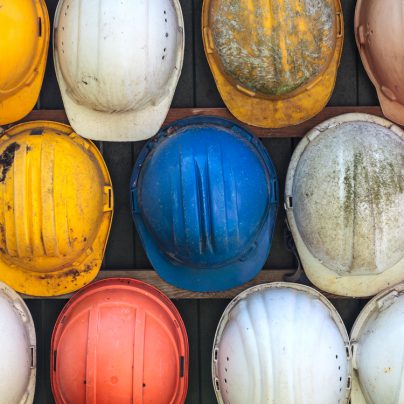Having been importers and specialist suppliers of high quality wood products ranging from hardwood and engineered floors, to decking and worktops, Wood and Beyond has gathered significant health and safety experience when dealing with timber products which brings me to writing this article, and put some of our health and safety tips on paper. If you are reading this article chances are you are considering buying wooden floors or in the initial stage of your market research, hopefully you will find our tips useful.
Hardwood Flooring Health and Safety Tips:
1. Is hardwood flooring really for you? Does not sound like a health and safety issue of the top, but if you are running an industrial operation such as workstations or assembly areas for example and the ground needs to cope with extreme heavy loads, hardwood might not be the right material for the floor to start with. Other materials such as tile PVC flooring with anti-slip technology will prove extremely hard wearing and easy to maintain making it a more sensible choice.
2. Always consider hygienic safety – Protect your staff, customers and the general public by ensuring your hardwood floors are clean and hygienic by using dedicated cleaning products with anti-bacterial properties. Ideally when hygienic safety is mentioned, we tend to normally think of the kitchen area and sometimes other catering areas such as medical rooms, however by ensuring that every area is hygienically clean (by simply hovering the floor and using a dedicated cleaner) you will also increase the longevity of the entire floor.
3. Avoid costly slips – Some hardwood floor finishes might be more receptive to become a slippery surface leading to unsafe workplace, especially when poor maintenance is applied. In addition, use of low grade cleaning chemicals and those with oily residue properties might make the floor slippery. To combat this, ensure that the right cleaning chemical is used, the cleaned area is clearly sign posted and if possible clean after hours when your staff and customers are away. In case you have recognised sections which have a high likelihood of becoming slippery, consider using anti slip add-ons such as self adhesive safety tapes for peace of mind.
The ultimate combination between great looking decor and health and safety is choosing the right floor for your particular circumstances, using quality cleaning products and if hardwood flooring is the right floor for you, make sure to use solid wood floors which are made from one piece of hardwood timber and are therefore more durable.
– – –
Guest post by Ran, Marketing Manager at UK based online shop Wood and Beyond – Hardwood Flooring

A chartered (fellow) safety and risk management practitioner with 20+ years of experience. David provides a healthy dose of how-to articles, advice and guidance to make compliance easier for construction professionals, Architects and the built environment. Get social with David on Twitter and Linkedin.



10 Comments
Thanks a lot blogger for such a nice and informative blogging .One of the best means of preventing serious workplace hazards is to establish an effective safety and health management system through which management and employees work together to actively identify, analyze and eliminate work-related hazards.I appreciate it .
http://claimss.putblog.net/importance-of-health-and-safety-training/
Thanks for the great information on the floor sanding .
I really enjoy reading your blog, it is very useful for us.
Very well described flooring safety tips for wooden flooring. Its very useful for new people who owns wooden flooring in their homes and other places.
Nice post. I think number 3 is the most important for the majority of businesses, as having effective anti slip flooring in the workplace will ensure at the very least your employees and customers ( if applicable ) will not come to any injury from slips. As we are well aware, these cause a high number of employee and customer injuries in a work place.
Yes I agree that it is very important to use the correct chemcials on wooden flooring. If you use the wrong kind of cleaning product it could result in your floor becoming very very slippy! Literally one step taken and you slip! As I have used the wrong chemcials before and it took a little while to make it non slippy again!
Floor sanding specialists – free quotes and home visit from Natural Floors UK
I needed to thank you for this good read!! I absolutely loved every little bit of it. I’ve got you book marked to check out new things you post…
My husband and I have been comtemplating to create an addition to our backyard to place a gazebo on top of it. We have been aiming at hardwood flooring as it gives a rustic touch to the area as we wish to turn our backyard into a mini resort. However, we are not sure if hardwood would retain its durability if exposed in constant rain and humidity or should we invest in concrete then laminate over with wooden surfaces instead.
Yes I’m totally agree that it is very important to use the correct chemicals on wooden flooring.
my knowledge on wood floors is updated because of this..thanks